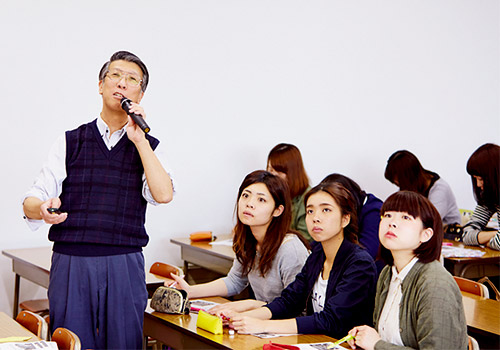
Dealing with patients as registered dietitians
Clinical Medicine I
Nutritional management is extremely important in the treatment and prevention of many serious diseases, including lifestyle-related diseases such as diabetes, hypertension, and dyslipidemia. In this course, as an introduction to clinical medicine, students will study essential knowledge for nutritionists and dietitians, including the pathological structures of the onset of various diseases, diagnosis, and testing.
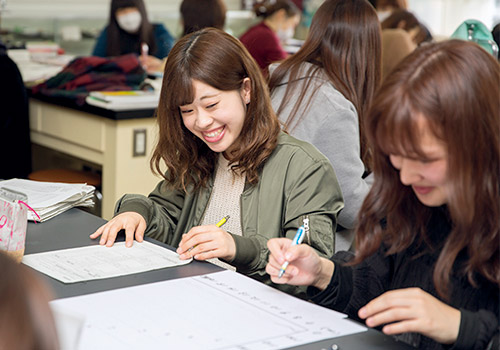
Cultivate skills in nutritional education to suit the target group
Practice in Nutrition Education II
Students will study the ideal state of nutritional education to suit the life stage and methods to provide that education. By producing course plans and teaching materials to conduct role plays, students will obtain practical skills in planning, implementing, and evaluating nutritional education programs.

Learn the methods and techniques for food service management
Food Service Management Practice I
Students will provide 100 school meals for SGU students. Through practicums that follow the PDCA cycle of food service management, students will learn the basics of the food service operational skills required of registered dietitians.
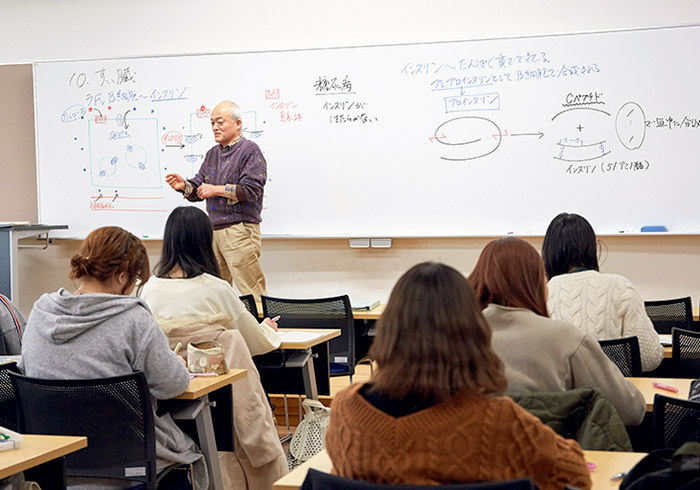
Learn about the mechanisms of your most precious asset – your body
Human Anatomy and Physiology II
Students will deepen their understanding of what organs and tissues are contained in the organ systems that make up the human body, how they are assembled, and how they work to support biological activity. Continuing on from the basics, students will study the structure and functions of the six organ systems.
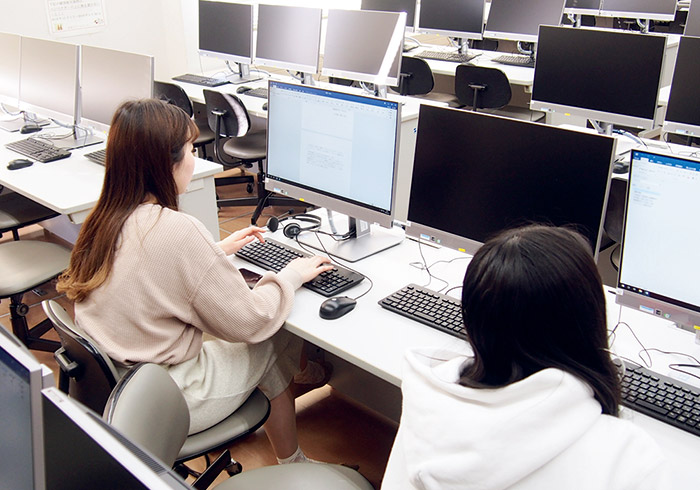
Cultivate skills in collecting, collating, and communicating information
Exercises in Information Processing
In today’s information society, the ability to use information proactively is a much-needed skill. In this practicum, students will use computers to learn how to search for and collect information about health and nutrition, collate and analyze data, and conduct presentations to communicate that information.
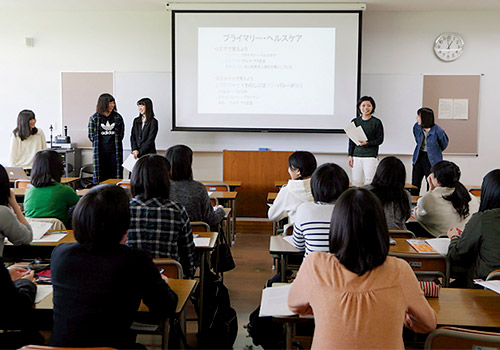
Acquire the knowledge needed to develop healthy local communities
Public Health I
Students will learn the principles and mechanisms of organized activities for maintaining and promoting health in human groups. While developing an understanding of the current situation using statistics and other information, students will learn better ways of conducting tailored health promotion activities for different organizations and subjects.
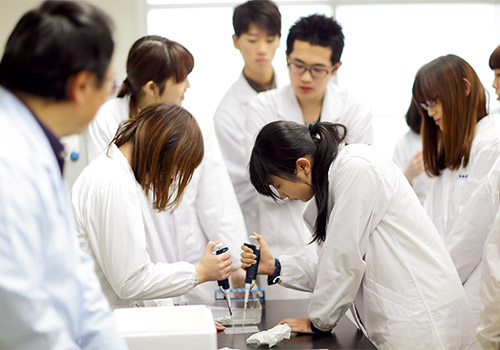
Understand food safety and learn practical matters through experiments
Experiment of Food Hygiene
Students will implement the actual procedures and methods for protecting the safety and soundness of food. They will conduct everything from testing of food production environments to prevention of deterioration, putrefaction, and food poisoning, detection of additives, testing of radiation in food, and testing of genetically modified foods.
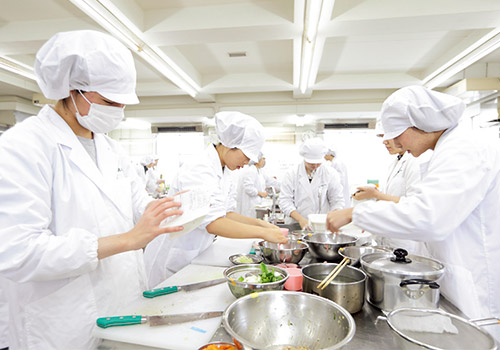
Acquire the basics of Japanese, Western, and Chinese food preparation
Practice in Cookery Science I
Students will learn the basics of cookery, taking preparation and handling and the characteristics of food preparation into account. Through practical training in the preparation of Japanese, Western, and Chinese cuisine and food for events and functions, students will learn the basics of healthy food, food culture, meal etiquette, and food traditions.
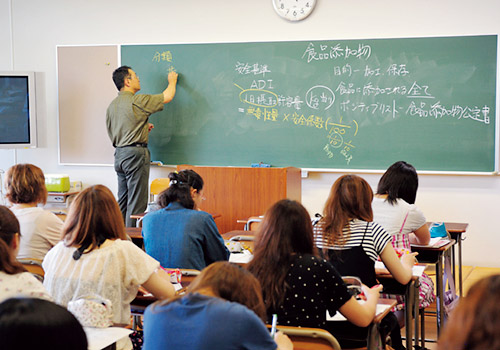
Understand food safety to benefit practical skills as nutritionists
Science of Food Hygiene
Students will study the knowledge about the prevention of damage to health due to food and drink, to protect the safety and soundness of foods. In particular, they will develop an understanding of knowledge concerning food safety of recent years, which will benefit their practice as nutritionists and registered dietitians. Lectures will also be given to help students prepare for the National Examination of Registered Dietitians.
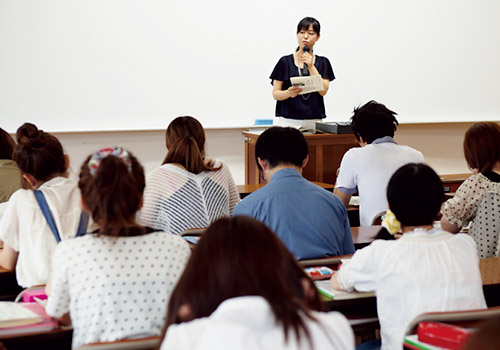
Explore what “eating” means to humans
Dietary Life
Students will study what “eating” means to humans, focusing on the physiological, psychological, social, cultural, and educational functions of food. They will trace the way diet has changed over the years, and consider the problems with the modern diet, based on the latest information.
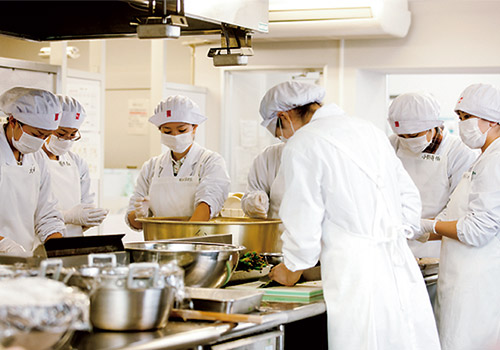
Experience the practice of a registered dietitian in various fields
Field Practice in Registered Dietitian I-IV
Through hands-on experience, students will focus on acquiring the knowledge and skills needed to manage school meal businesses and operate school meal services in I and II and study nutritional guidance in III and IV. In this way, they will acquire the skills of a registered dietitian in the respective facilities. They will hold prior discussions with the nutritionists at the facilities where they will do their practicums and, as far as possible, complete their practical training under the guidance of the nutritionists and registered dietitians.